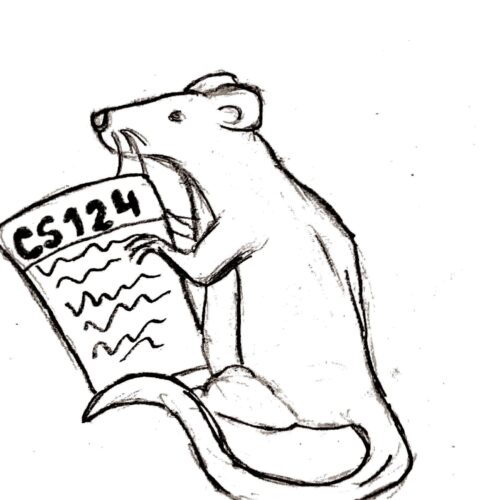Two Hundred Computer Scientists and One Rat
In the week before move-out, courses take different stances on social distancing
By MICHAEL KIELSTRA and JULIO V. PARDO
On Monday, March 9, the day before students were told that they would be moving out early, the Centers for Disease Control and Prevention were already recommending that people stay a minimum of six feet apart from each other. On Friday, March 6, the Office of the Executive Vice-President had sent out an email to everyone on campus saying that, “We strongly discourage any non-essential meetings or events of 100 people or more.” As Michael Mitzenmacher, Professor of Computer Science at SEAS, puts it, however, “Harvard’s directions at the time were classes and exams were to proceed as planned.”
Complicating this was the fact that COVID-19 hit Harvard right in the middle of midterm season. As large gatherings became more and more discouraged, and different groups gave contradictory advice, professors had to make decisions about how to assess their classes. Some courses had their midterms moved; some, canceled entirely. And then there were those that went full steam ahead, social distancing notwithstanding. Two computer science courses especially have been brought to the Independent’s attention.
Mitzenmacher wound up following Harvard’s directions in this case. He teaches Computer Science 124, Data Structures and Algorithms, which held its midterm on March 9. Ben Dreier ’22, a Computer Science concentrator, described the midterm as a “claustrophobic” event with “everyone packed into Science Center C with not even two seats between people.” Science Center Hall C seats 351 people at capacity, and Dreier told the Independent that, in his estimation, more than half the seats were full. Dreier also noted that “classes and large lectures were still going on” at the time, and he said he had assumed that the midterm had been carried on under this philosophy.
(At one point, as Dreier describes it, “I heard a shriek and I looked up and a bunch of people were doing the wave in the center aisle.” A rat had found its way in.)
Computer Science 51, Abstraction and Design in Computation, taught by Stuart Shieber, also decided to hold its midterm in the evening of March 9. The class was divided into two groups. One of them was assigned to Science Center B, while the other was assigned to Science Center E. The test was a paper-based, 1.5 hours-long exam, which probed students on their ability to identify data types and maintain a consistent coding style. As a measure against possible academic dishonesty, students were required to leave an empty chair among themselves and their neighbors. This distancing, however, fell short of the CDC’s ideal six feet.
This is not necessarily a STEM thing. Cengiz Pehlevan, Assistant Professor of Applied Mathematics, did not cancel any of his Applied Math 111 classes, but did cancel the midterm and expand a later problem set to make up for it. Sebastien Vasey, Benjamin Pierce Fellow in Mathematics, took his Math 123 class entirely online, starting from Wednesday, March 11. He also canceled his midterm. Nor was conservatism irrevocably linked to some computer science professors: John Huth, Donner Professor of Science and physicist, had planned to have a proctored, hour-long exam after spring break, and he did, over Zoom. Joe Blitztein and Neil Sheppard, professors of Statistical Inference (Stat 111), acted in a similar manner as they continued their lectures on Zoom but decided to postpone the exam from its scheduled day to the week after the break, hoping to let their students weather the chaos and uncertainty of the week.
To many students, the March 10 news of the early move-out came out of nowhere. Certainly, very few people had been treating it as the most likely possibility. In the confused days immediately before and after that decision, professors had to choose whose advice to take. Some went with the CDC’s, and some went with the Harvard administration’s. Neither was wrong, but, in suboptimal times, neither was optimal.
Michael Kielstra ’22 (pmkielstra@college.harvard.edu) does not like midterms at the best of times.
Julio V. Pardo ‘22 (julio_v_pardo@college.harvard.edu) is only thankful midterm season is over.
Illustration by Isa Gooijer ’23 (isa_gooijer@college.harvard.edu).

